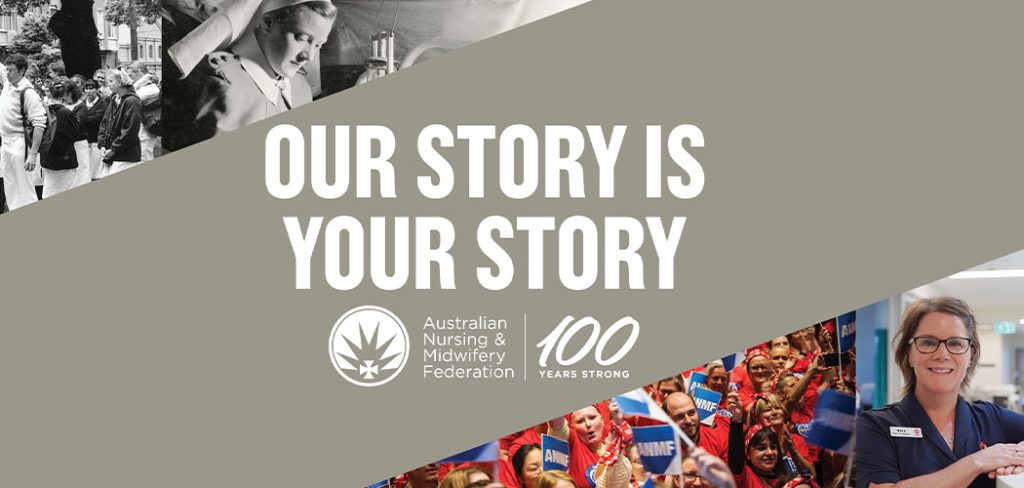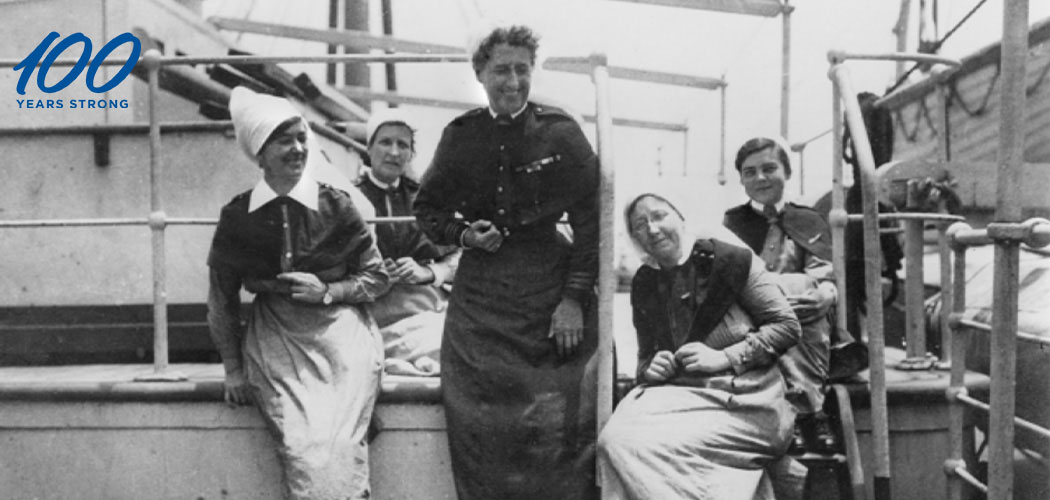A pioneering ANF leader and a force in Australian nursing (1870-1944).
Many of the original members of the ANF were visionary leaders and activists for nurses and women, far ahead of their time. They laid the foundation for the ANMF’s achievements today.
Evelyn Augusta Conyers, an attendee of the Australian Nursing Federation’s inaugural 1924 meeting, was one of them. Evelyn, a trailblazer in Australian nursing and instrumental in professional nursing organisations, became the vice president of the Federation the following year.
Evelyn was also the founder of the (Royal) Victorian Trained Nurses’ Association in 1901. Additionally, she served as a director of the Victorian Trained Nurses’ Club Ltd, and a trustee of the Edith Cavell Trust Fund. She also served on the board of management of Fairfield Infectious Diseases Hospital.
Born on 1 March 1870 in Invercargill, New Zealand, Evelyn was the daughter of engineer William Conyers and his wife, Fanny. She received a private education and attended girls’ high schools in Invercargill and Dunedin.
In her early 20s, Evelyn moved to Victoria, Australia, where she trained as a nurse. She earned her certificate at the Children’s Hospital in 1894 and completed her training at Melbourne Hospital in 1896. By 1901, she became the matron of a private hospital in Melbourne. In 1904, she was appointed the first matron of the Queen’s Memorial Infectious Diseases Hospital at Fairfield. Around 1907, Evelyn and Sister Jessie MacBeth cofounded Lancewood, a private hospital in Kew, Victoria.
Evelyn’s military career began in 1903 when she joined the Australian Army Nursing Service as a sister. In October 1914, she joined the Australian Imperial Force (AIF) as a senior sister at the 1st Australian General Hospital. Her first deployment was to Cairo, assisting at the Egyptian Army Hospital, Abbassia. By July 1915, she was back with the 1st Australian General Hospital at Heliopolis and quickly rose to the position of acting matron of the 3rd Australian Auxiliary Hospital.
In December 1915, during a reorganisation, Evelyn was appointed matron-in-chief of the Australian Army Nursing Service, overseeing all Australian Army nurses except those in India and Salonica, Greece.
In 1916, she moved to AIF headquarters in London, where her exceptional negotiation skills helped ease tensions between nurses and medical officers and reduced rivalry between Australian and British nursing services. She worked closely with Maud McCarthy, matron-in-chief of the British Expeditionary Force, visiting casualty clearing stations and auxiliary hospitals on the Western Front.
Evelyn took a brief absence in Australia from November 1917 to January 1918 before finally returning in December 1918 to continue her work at Lancewood Hospital. Her AIF appointment ended in March 1920, but she remained active in the military.
Throughout her career, Evelyn received numerous honours including the Order of the Royal Red Cross (1st Class), the OBE, the CBE, and the Florence Nightingale Medal.
Evelyn Conyers passed away on 6 September 1944 at Epworth Private Hospital in Richmond, Victoria. She was buried with full military honours in Kew Cemetery, leaving behind a legacy of significant contributions to the nursing profession in Australia.1,2
References
1 John Reid, ‘Conyers, Evelyn Augusta (1870–1944)’, Australian Dictionary of Biography, National Centre of Biography, Australian National University, adb.anu.edu.au/biography/conyers-evelyn-augusta-5759/text9757, published first in hardcopy 1981, accessed online 5 June 2024.
2 Encyclopedia of Australian Science and Innovation, Conyers, Evelyn Augusta (1870-1944), published by the Centre for Transformative Innovation, Swinburne University of Technology. eoas.info/biogs/P001031b.htm, accessed online 5 June 2024.









